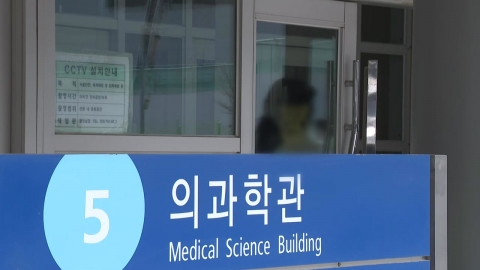With the exchange rate still high, the Trump administration is about a month away.
Deputy Prime Minister Choi Sang-mok will hold a series of ministerial meetings in the economic and industrial sectors.
The Bank of Korea has also issued a message regarding our economic system.
I'm connecting with the reporter. Reporter Lee Seung Eun!
Yesterday, Acting President Han Deok-soo ordered an economic emergency response system if the downside risk of the economy is high. A series of ministerial meetings are being held?
[Reporter]
That's right.
Deputy Prime Minister for Economy Choi Sang-mok will hold an emergency meeting of economy-related ministers at the Seoul Government Complex at 3 p.m. shortly.
He will then preside over a meeting of foreign ministers.
It is a conference body that deals with economic, trade, and foreign affairs, including the Ministry of Foreign Affairs, ahead of the launch of the Trump administration.
Then, we plan to hold a meeting on macroeconomic and financial issues with Bank of Korea Governor Lee Chang-yong, the Financial Services Commission, and the Financial Supervisory Service head, and the so-called F4.
The acting president is expected to discuss emergency response priorities and strategies in the financial and industrial sectors.
[Anchor]
I heard that the Bank of Korea has sent a message regarding the management of the economic system in anticipation of less market volatility.
[Reporter]
That's right.
The Bank of Korea said that the volatility of the financial and foreign exchange markets expanded in the short term and consumer sentiment shrank a bit, but the impact on overall growth was not significant, given the impeachment of former President Roh Moo Hyun in 2004 and Park Geun Hye in 2016.
The quarter-on-quarter growth rate was 0.4% in the third quarter of 2016 and 0.8% in the fourth quarter of the year when the impeachment of the Park Geun Hye began and 1.1% in the first quarter of the following year.
But the game situation is different now.
At that time, the economy was bottomed out and on the rise, and now export growth is on the decline and domestic demand is very sluggish.
The retail sales index has declined for the 10th quarter, the longest decline ever.
In addition, currency instability is further threatening domestic demand.
Immediately after the declaration of the emergency martial law, the won-dollar exchange rate, which once breached the 1,440 won level, is rising up and down the 1,430 won level.
As of the 13th, it has risen by nearly 70 won from the annual average exchange rate this year.
The Bank of Korea said that unlike in the past, uncertainties in the trade environment have grown.
Therefore, it said that if the period of political conflict is longer than in the past, the negative impact on the economy could expand.
Therefore, he stressed that the impact would be limited only if confidence was given that the economic system worked independently and normally.
The business community says that the ruling and opposition parties' issue-free bills, such as the Special Act on Semiconductors, the Basic Act on Artificial Intelligence, and the Special Act on the Expansion of the National Key Power Network, should be discussed as soon as possible.
I'm YTN's Lee Seung Eun.
※ 'Your report becomes news'
[Kakao Talk] YTN Search and Add Channel
[Phone] 02-398-8585
[Mail] social@ytn.co.kr
[Copyright holder (c) YTN Unauthorized reproduction, redistribution and use of AI data prohibited]
Economy
More- Choi Sang-mok said, "Converging the capacity of the public and private sector, managing the economy in a stable manner..."Kyungbang announcement by the end of this year"
- Choi Sang-mok "All capabilities...Managing the economy as stable as possible"
- Tender fixing for water regeneration drugs...KRW 390 million in fine for Taewon and Politez
- Financial Services Commission "Bonds and Short-Term Fund Stabilization Finances Remaining More Than 27 Trillion"

![[On-site Video+] Kwon Sung-dong, "Democratic Party of Korea's actions in charge of state affairs are not right."](https://image.ytn.co.kr/general/jpg/2024/1215/202412151523241016_h.jpg)
![[On-site video+] Han Deok-soo said, "Stable state administration is in charge...I'll do my best".](https://image.ytn.co.kr/general/jpg/2024/1215/202412151639340190_h.jpg)

![[Y Ranking] Fashion Worst, Wi Ha-joon, Lim Ji-wan, Kang Ha-neul, Park Kyu-young, Jo Yuri.](https://image.ytn.co.kr/general/jpg/2024/1215/202412150900309186_h.jpg)
![[Yetterview] Ha Minhyuk from "Drunk Romance". "I liked Kim Sejeong since I.O.I. It was amazing".](https://image.ytn.co.kr/general/jpg/2024/1214/202412140800015124_h.jpg)



